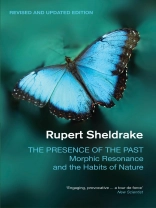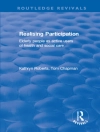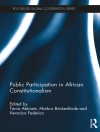Rupert Sheldrake's theory of morphic resonance challenges the fundamental assumptions of modern science. A world-famous biologist, Sheldrake proposes that all self-organizing systems, from crystals to human societies, inherit a collective memory that influences their form and behaviour. Rather than being ruled by fixed laws, nature is essentially habitual. All human beings draw upon a collective human memory, and in turn contribute to it. Even individual memory depends on morphic resonance rather than on physical memory traces stored within the brain. Morphic resonance works through morphic fields, which organize the bodies of plants and animals, coordinate the activities of brains, and underlie mental activity. Minds are extended beyond brains both in space and time. This fully-revised and updated edition of The Presence of the Past summarizes the evidence for Dr Sheldrake's controversial theory, reviews new research, and explores its implications for biology, chemistry, physics, psychology and sociology. In place of the mechanistic worldview that has dominated biology since the nineteenth century, this book offers a revolutionary alternative, and opens up a new understanding of life, minds and evolution.
Tentang Penulis
DR. RUPERT SHELDRAKE is a biologist and author of more than 80 scientific papers and ten books, including A New Science of Life (Icon, 2008). He was a Fellow of Clare College, Cambridge and a Research Fellow of the Royal Society. He is a visiting Professor at the Graduate Institute in Connecticut and a Fellow of the Institute of Noetic Sciences in California. www.sheldrake.org












